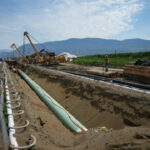When evaluating a political speech from a literary perspective, it is important to consider how the rhetoric matches the occasion. Does the moment call for seriousness or inspiration? Humility or defiance? Do the speaker’s words resonate with the weight of history?
In the case of Donald J. Trump’s 33-minute address at Trump Tower, the situation was both unusual and significant. A former president, on the verge of becoming his party’s nominee once again, was facing 34 felony convictions. This unprecedented scenario ensures that the speech will be remembered in American political history.
However, as both text and performance, the speech was somewhat lackluster. Trump’s speaking style is known for its improvisational nature and lack of cohesive arguments. While he maintained some of these traits in his address, his demeanor was subdued. The content itself was unremarkable, primarily focusing on the trial with minimal exploration of broader political themes.
Trump portrayed himself as a disgruntled New York businessman, reminiscent of a pre-MAGA era. He did not exude the typical campaign fervor seen at his rallies. The populist flair that energizes his supporters was notably absent.
While Trump touched on familiar topics such as crime and immigration, framing his legal issues as an attack on the Constitution, his use of dramatic religious imagery was notable. However, his description of the judge as “angelic” yet “diabolical” and the claim that witnesses were “literally crucified” veered into hyperbole.
The bulk of the speech delved into legal details, with Trump dissecting the prosecution’s case against him. He carefully avoided violating a gag order by refraining from naming specific individuals. The tone was more akin to a defense against a traffic ticket than a martyr defending his innocence.
Despite the lack of substantial content, Trump’s supporters were already fired up. The contentious trial had already galvanized his base, leading to a fervent response on social media. The speech merely echoed the sentiments that were already prevalent among his followers.
In a year filled with heightened political tensions, Trump’s inflammatory rhetoric seemed almost commonplace. The speech served as a reflection of the divisive atmosphere in 2024 America, where extreme viewpoints and apocalyptic predictions have become the norm.






